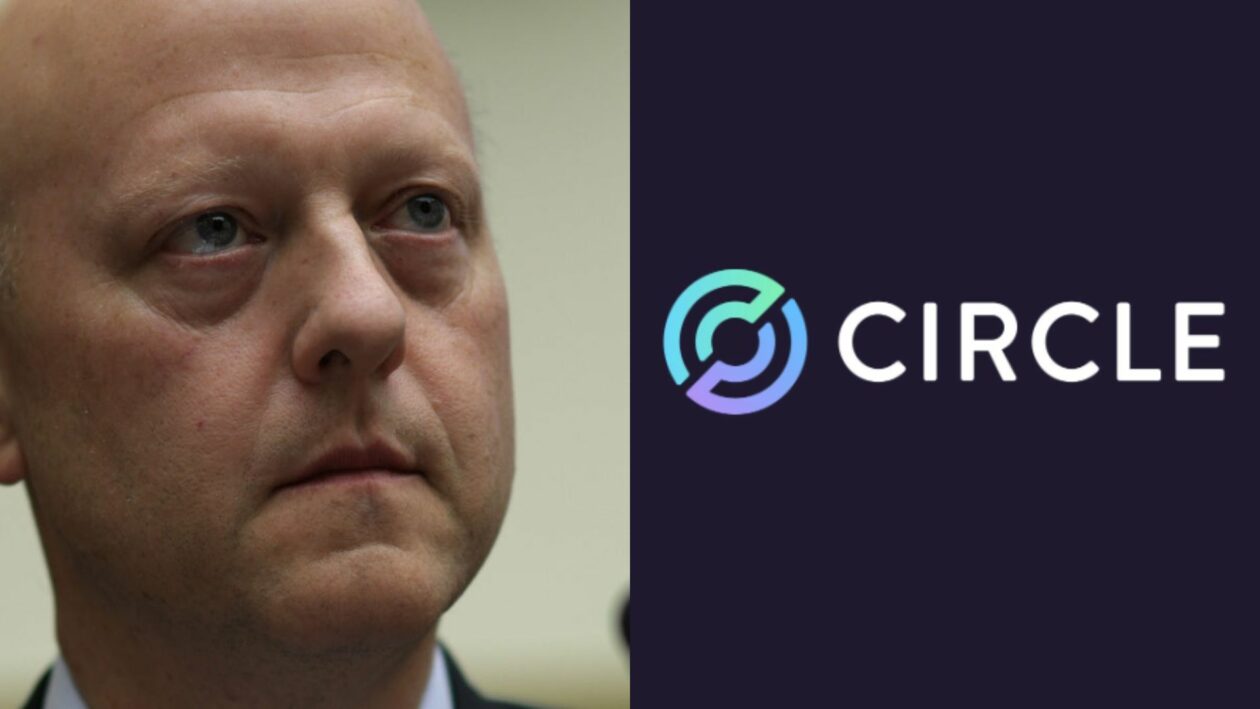Circle Internet Financial’s USDC, the second-largest stablecoin by market capitalization, lost and then regained parity to the U.S. dollar after regulators took over the failed Silicon Valley Bank and guaranteed deposits, including Circle’s, to prevent a broader run on the banking industry.
USDC was trading at US$0.9948 at 9:30 a.m. in Hong Kong on Monday, after falling to as low as US$0.8774 on Saturday, according to data from CoinMarketCap. Circle held about US$3.3 billion in USDC reserve deposits at Silicon Valley Bank, known as SVB.
Cryptocurrencies also bounced back from losses last week, with Bitcoin jumping almost 10% in early trading in Asia, after the Federal Deposit Insurance Corporation (FDIC) – a government body set up after the 1930s Great Depression to provide deposit insurance at savings and commercial banks – said on Sunday that it has taken over SVB.
The move to backstop SVB, which had total deposits of more than US$175 billion, went all the way up to the White House and President Joe Biden for approval at the weekend, according to a joint statement by the Treasury, the Federal Reserve and the FDIC, indicating the seriousness with which U.S. regulators took the threat of bank failures spreading.
The fall of SVB followed the earlier collapse of another California-based and crypto-linked bank Silvergate Capital last week. The FDIC said Sunday it has also taken control of New York-based Signature Bank, one of the biggest lenders in the crypto industry, due to banking industry risk.
“Depositors will have access to all of their money starting Monday, March 13. No losses associated with the resolution of Silicon Valley Bank will be borne by the taxpayer,” the joint official statement said.
“We are also announcing a similar systemic risk exception for Signature Bank, New York, New York, which was closed today by its state chartering authority. All depositors of this institution will be made whole. As with the resolution of Silicon Valley Bank, no losses will be borne by the taxpayer.”
Circle
Jeremy Allaire, Co-founder and CEO of Circle, said in a statement dated March 12 in Boston, U.S.: “We are heartened to see the U.S. government and financial regulators take crucial steps to mitigate risks extending from the banking system.”
Allaire said the US$3.3 billion in USDC reserve deposits held at Silicon Valley Bank “will be fully available when U.S. banks open tomorrow morning. No USDC cash reserves were held at Signature Bank. As a regulated payment token, USDC remains redeemable 1:1 with the U.S. Dollar.”
FDIC data shows SVB had about US$209 billion in total assets at the end of last year, making it the biggest bank failure in the U.S. since the 2008 financial crisis that included the collapse of Lehman Brothers, a 158-year old investment bank that is the largest bankruptcy in U.S. history with more than US$600 billion in liabilities.
The FDIC in its Sunday statement said all insured depositors at SVB will have full access to their insured deposits no later than Monday morning in the U.S. and that the FDIC will pay uninsured depositors an advance dividend within the next week.
“As the FDIC sells the assets of Silicon Valley Bank, future dividend payments may be made to uninsured depositors,” the federal agency said.
Crypto link?
New York-based Signature Bank was closed down on Sunday by its state chartering authority, with the FDIC appointed as receiver. At the end of last year, Signature Bank held total assets of around US$110.36 billion with US$88.59 billion in deposits, according to the FDIC.
Crypto exchange Coinbase tweeted on Monday morning in Asia that the firm had about US$240 million in corporate cash at Signature as of Friday, and it is currently facilitating all client cash transactions with other banking partners.
The U.S. bank failures could be seen as contagion from the crypto industry, but “the collapses of Silvergate and SVB didn’t appear to have direct links with cryptocurrency,” Winston Hsiao, co-founder and chief revenue officer of Taipei-based fiat-crypto exchange XREX, wrote on Sunday in a Facebook post.
“Crypto firms are actually victims just like many corporates and individuals that deposited at the two banks,” he said.
US President Joe Biden on Twitter said he is “firmly committed” to holding those responsible for the Silicon Valley Bank and Signature Bank collapse “fully accountable.”

